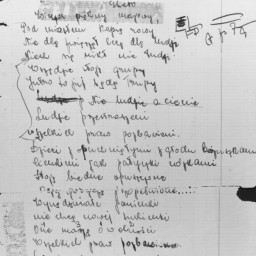You searched for: bergen-belsen
<< Previous | Displaying results 181-190 of 193 for "bergen-belsen" | Next >>
-
Lilly Appelbaum Malnik
ID CardLilly Appelbaum was born in Antwerp, Belgium to Jewish parents, Israel and Justine. Lilly's parents separated before she was born. Her father immigrated to the United States. Lilly had two older siblings, Leon (born 1927) and Maria (born 1925). She lived with her maternal grandparents in Antwerp. During the week, her mother lived in Brussels, where she operated a small workshop that made raincoats. 1933-39: Lilly and her grandparents lived in a predominantly Jewish neighborhood in Antwerp. She went to a…
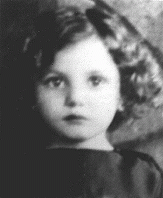
-
Bella Jakubowicz Tovey describes a meeting between her father and the Jewish council leader in Sosnowiec
Oral HistoryBella was the oldest of four children born to a Jewish family in Sosnowiec. Her father owned a knitting factory. After the Germans invaded Poland in 1939, they took over the factory. The family's furniture was given to a German woman. Bella was forced to work in a factory in the Sosnowiec ghetto in 1941. At the end of 1942 the family was deported to the Bedzin ghetto. Bella was deported to the Graeben subcamp of Gross-Rosen in 1943 and to Bergen-Belsen in 1944. She was liberated in April 1945.
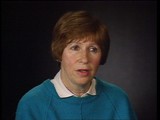
-
Rifka Muscovitz Glatz describes living on a kibbutz and dealing with language barriers
Oral HistoryRifka was raised in a religious family in Debrecen. In the early 1940s, her family moved to Cluj (Kolozsvar) in Northern Transylvania, annexed to Hungary from Romania in 1940. In 1944, she and her family were forced to leave their house in Cluj. They were rounded up by Hungarian troops helping the Nazis and taken to a brick factory where they stayed for a month. In June 1944, Rifka was transported to the Bergen-Belsen concentration camp. Eight months later she was transported to Switzerland. She sailed to…
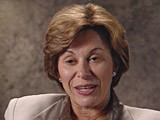
-
1942: Key Dates
ArticleExplore a timeline of key events during 1942 in the history of Nazi Germany, World War II, and the Holocaust.
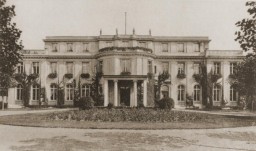
-
1943: Key Dates
ArticleExplore a timeline of key events during 1943 in the history of Nazi Germany, World War II, and the Holocaust.
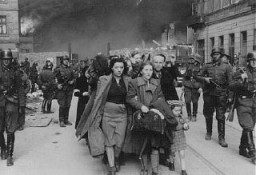
-
Dachau after liberation
FilmThe Dachau concentration camp, northwest of Munich, Germany, was the first regular concentration camp the Nazis established in 1933. About twelve years later, on April 29, 1945, US armed forces liberated the camp. There were about 30,000 starving prisoners in the camp at that time. The film seen here was edited from original footage shot by Allied cameramen as liberating troops entered Dachau. It was discovered in the archives of the Imperial War Museum in 1984 and was never completed.
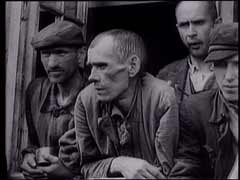
-
Martin Weiss
ArticleMartin Weiss and his family were deported to Auschwitz in 1944. Explore Marty’s biography and his description of arrival in Auschwitz.
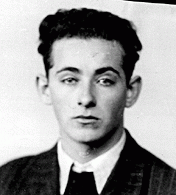
-
Doriane Kurz describes how she and her brother were hidden
Oral HistoryDoriane's Jewish family fled to Amsterdam in 1940, a year that also saw the German occupation of the Netherlands. Her father perished after deportation to Auschwitz. After their mother was seized, Doriane and her brother hid with gentiles. The three were reunited at Bergen-Belsen, where they were deported via Westerbork. They were liberated during the camp's 1945 evacuation. Doriane's mother died of cancer soon after Doriane helped her recover from typhus. Doriane and her brother immigrated to the United…
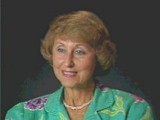
-
Hetty d'Ancona Deleeuwe describes difficulties of going into hiding
Oral HistoryThe Germans invaded the Netherlands in May 1940. After a year or so, Hetty and other Jewish children could no longer attend regular schools. The Germans took over her father's business in 1942. Hetty's father tried to prove that the family was Sephardic, and they were thus exempted from a roundup in 1943. Hetty's father decided that the family should leave Amsterdam, and Hetty was hidden with a family in the southern Netherlands. She and both her parents survived.
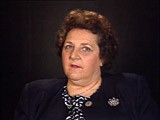
-
Children's Diaries during the Holocaust
ArticleOf the millions of children who suffered persecution at the hands of the Nazis and their Axis partners, a small number wrote diaries and journals that have survived.
